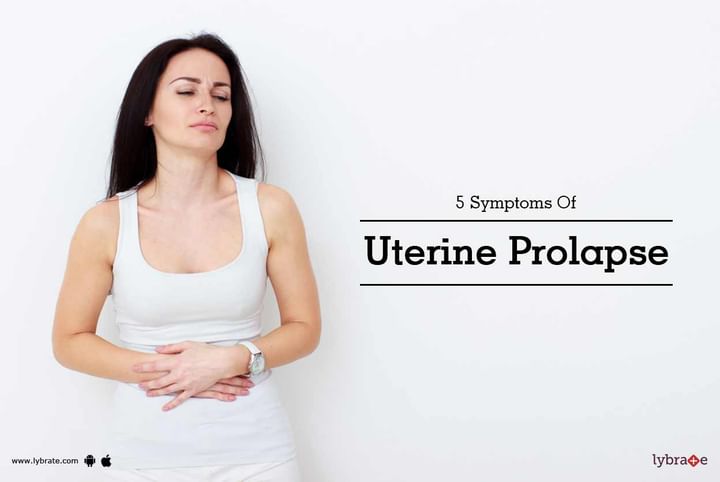5 Symptoms Of Uterine Prolapse
The condition of uterine prolapse takes place when the floor muscles (and sometimes, ligaments) of the pelvis region gets stretched overly and then gradually weakens, thus becoming unable to provide adequate support to the uterus. This often leads to the protrusion or the slipping down of the uterus out of the vaginal opening. Though it can affect women of any age, it usually happens to women after menopause, especially those who have already had deliveries out of the vagina.
Causes:
The weakening of the muscles in the pelvic region is the chief cause that leads to uterine prolapse. Other causes include:
1. Natural estrogen loss, especially after menopause
2. Gravity effects
3. Supportive tissues of pregnancy and childbirth being damaged
4. Constant straining over time
5. Excessive smoking
6. Improper weight - obesity or being overweight
Symptoms:
There are a number of varieties of uterine prolapse, of varying severity. In case of moderate to severe uterine prolapse, the symptoms tend to be more pronounced and include a number of prominent symptoms.
1. Protruding tissue from the vagina
2. Problems in bowel regulation
3. Increased lower back pains
4. Increased urinary problems, such as leakage or increased retention
5. Looseness in the vagina, which may affect your sex life
Usually, these are symptoms which become pronounced in the morning and eventually worsens through the course of the day.
Risk Factors - The major risk factors that may increase the risk of being afflicted by uterine prolapse are:
1. Multiple pregnancies
2. Increasing age
3. Past problems relating to the pelvis - including surgeries or accidents
4. General weakness in tissues
5. Frequently lifting heavy weights
Additionally, there are a number of conditions, such as chronic constipation, obesity or other pulmonary diseases, that may apply excess strain on tissues and muscles of the pelvic region, that accentuates your chances of being afflicted by uterine prolapse. If you wish to discuss about any specific problem, you can consult a Gynaecologist.



+1.svg)
